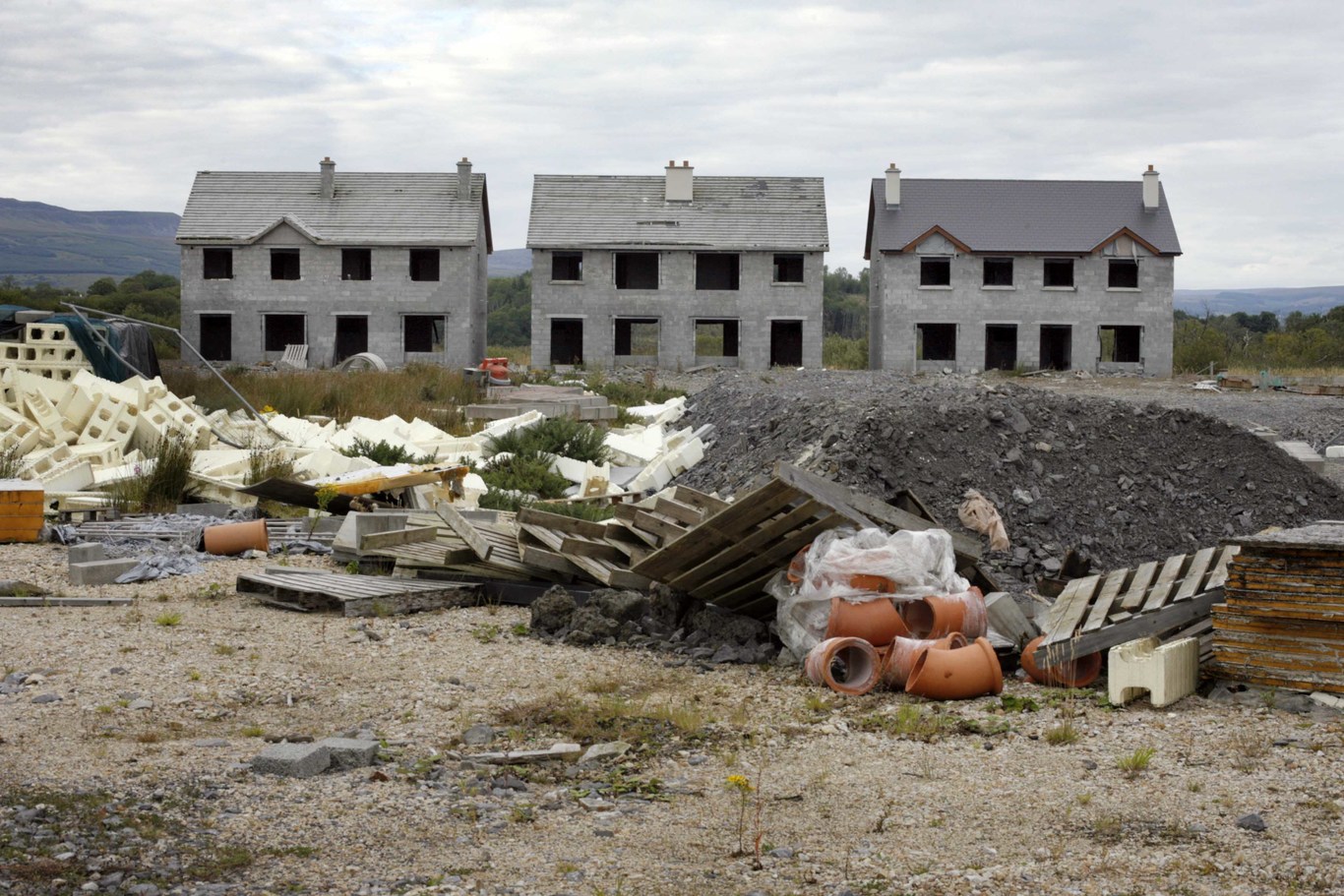It's 'unlikely' big housebuilders will buy any of the remaining 250 ghost estates
Asset management firm Investec says there are ‘few if any’ opportunities for the main construction firms.
THERE ARE MORE than 250 so-called ‘ghost estates’ leftover from the boom, but few if any will be of much use to the main housebuilders, according to one analyst.
A government report that’s due to be published later today has found that there are 256 unfinished housing developments across the country, down from almost 3,000 nearly a decade ago.
Within the hundreds of unfinished developments, more than 670 dwellings are completed but vacant, over 3,000 are at various stages of completion and almost 5,740 haven’t been started yet. Some 4,600 dwellings are completed and occupied.
According to a draft version of the Department of Housing report, the majority of ghost estates are located in counties Cork, Roscommon, Donegal and Kerry.
The only locations where there are no ghost estates are Westmeath and south Dublin.
Poor locations
Housing department officials expect that “a good number” of ghost estates will move off the list this year as some sites have been put up for sale or have had new planning applications lodged on them.
However, asset management firm Investec said in a morning briefing note that it’s unlikely any of the main housebuilding firms will acquire the sites because most are in poor locations.
Investec economist Philip O’Sullivan described ghost estates as “one of the most visible manifestations of the excesses of the property bubble of the early noughties”.
“With the national housing stock standing at slightly over 2 million units, the total capacity … of the remaining unfinished developments equates to less than 0.5% of the housing stock,” he said, adding that the government’s efforts to fix the problem is “welcome”.
However, O’Sullivan said it is unlikely that all the remaining plots will be built on “given the location of some of these estates”.
“With most of these estates located outside of the main urban centres we see few, if any, opportunities for the likes of the listed housebuilders and REITs (real estate investment trusts) to acquire units or development assets from this source,” he said.






